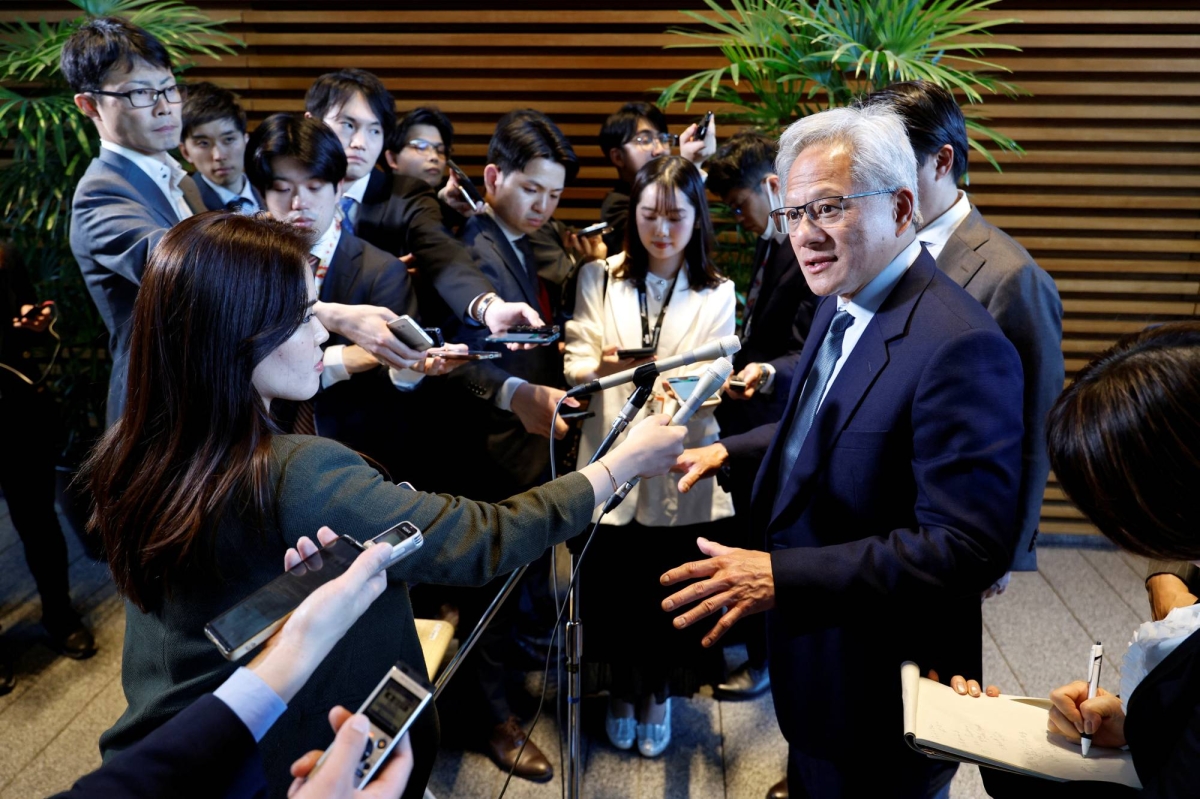Nvidia CEO Pushes Japan for More AI Power: A Deep Dive into the Geopolitical Implications
Jensen Huang, CEO of Nvidia, the leading manufacturer of graphics processing units (GPUs) crucial for artificial intelligence development, recently embarked on a mission to bolster Japan's AI capabilities. This move signifies a pivotal moment in the global AI race, highlighting the strategic importance of technological advancement and its geopolitical ramifications. Huang's push isn't just about selling more chips; it's about forging alliances and securing a leading position in the future of AI.
Why Japan? A Strategic Investment for Nvidia
Japan, a nation known for its technological prowess and robust manufacturing sector, presents a compelling target for Nvidia's expansion. The country possesses a highly skilled workforce, a strong commitment to research and development, and a burgeoning AI sector ripe for growth. However, its current AI infrastructure isn't fully optimized to harness the full potential of cutting-edge technologies like Nvidia's GPUs. Huang's strategy appears to be twofold:
1. Expanding Market Share: The Business Imperative
The sheer size of the potential market in Japan is a significant driver. Investing in Japan’s AI infrastructure translates to substantial revenue growth for Nvidia. By providing the necessary tools and expertise, Nvidia can capture a significant portion of this burgeoning market. This is a classic business strategy aimed at maximizing returns in a rapidly growing sector.
2. Geopolitical Positioning: A Strategic Gambit
Beyond the economic benefits, Huang's initiative also carries significant geopolitical implications. The global AI race is heating up, with the US and China vying for supremacy. By strengthening Japan's AI capabilities, Nvidia is effectively strengthening a key US ally, creating a counterbalance to China's growing influence in the field. This demonstrates a sophisticated understanding of the interplay between technology, economics, and international relations.
The Challenges and Opportunities
While the opportunities are immense, several challenges need to be addressed. These include:
- Regulatory hurdles: Navigating Japan's complex regulatory environment can be challenging. Ensuring compliance with data privacy laws and other regulations is crucial for Nvidia's success.
- Competition: Other GPU manufacturers and AI solution providers are also vying for a share of the Japanese market. Nvidia will need to differentiate itself through superior technology, strong partnerships, and compelling value propositions.
- Talent acquisition: Securing highly skilled AI engineers and researchers in Japan is critical. Competition for talent is fierce, requiring Nvidia to offer attractive compensation packages and career development opportunities.
What's at Stake?
The success of Nvidia's push into Japan has significant implications, not only for the company itself but also for the global AI landscape. A stronger Japanese AI sector could:
- Boost global innovation: Japan's contributions to AI research and development could accelerate the pace of global innovation.
- Enhance national security: A more robust AI sector would enhance Japan's national security capabilities, particularly in areas like cybersecurity and defense.
- Drive economic growth: The AI industry can be a powerful engine of economic growth, creating new jobs and stimulating innovation in related sectors.
Conclusion: A Calculated Risk with High Rewards
Nvidia's CEO's push for more AI power in Japan is a strategic move with significant implications. It represents a calculated risk with the potential for high rewards, promising both substantial financial gains for Nvidia and broader geopolitical ramifications. The success of this initiative will depend on effectively navigating regulatory hurdles, outcompeting rivals, and securing top AI talent. The outcome will undoubtedly shape the future of AI development and the global balance of power in this critical technological domain. The world watches closely as this high-stakes game unfolds.
